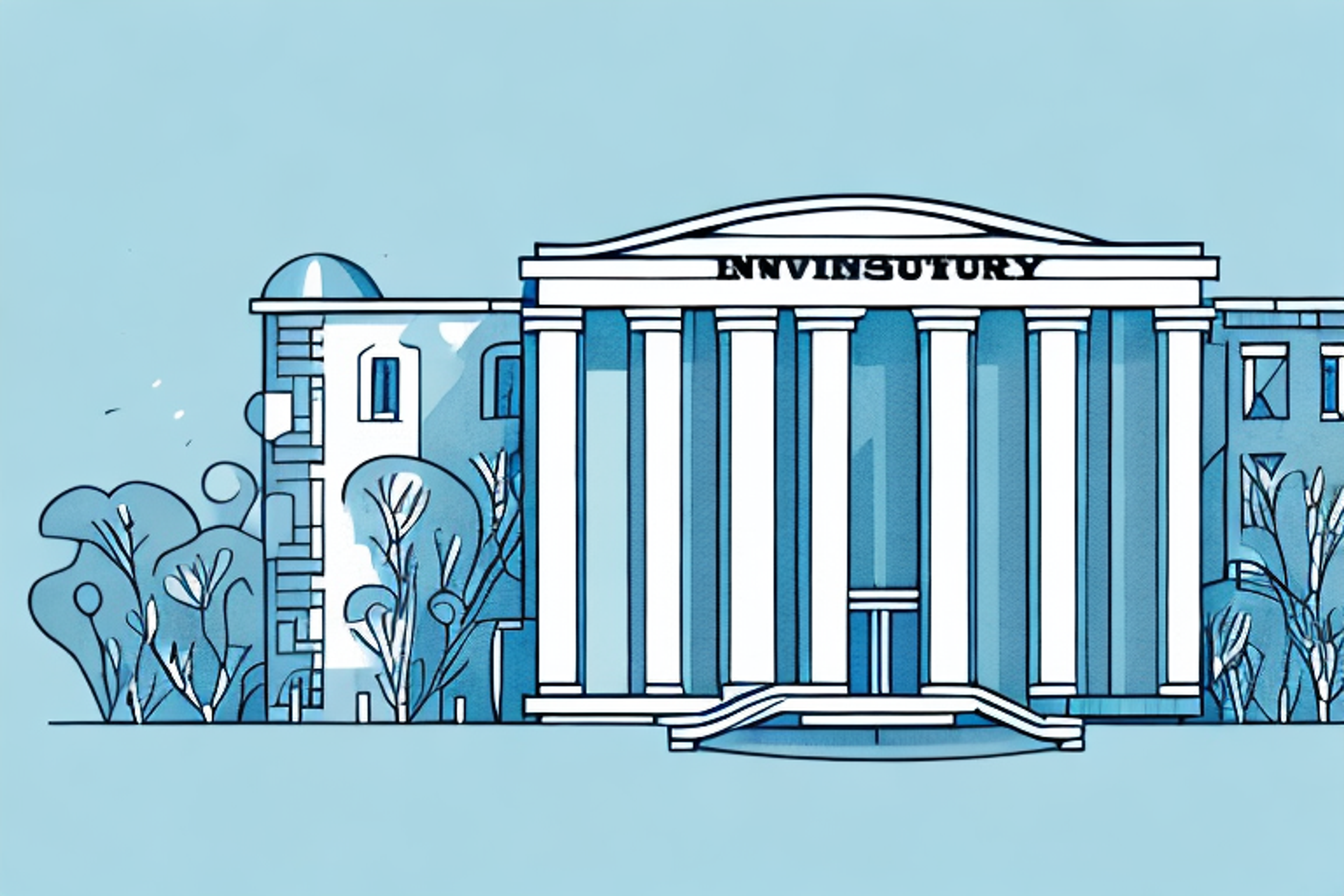A Guide to the University of Florida Levin College of Law Interview Process
If you're preparing for an interview at the University of Florida Levin College of Law, this guide is a must-read.
Posted May 12, 2023

Table of Contents
Are you feeling nervous about your upcoming interview at the University of Florida Levin College of Law? Fear not! This comprehensive guide will take you through every step of the process and provide you with valuable tips and strategies to help you succeed.
Understanding the Purpose of the Interview Process
Before we dive into the specifics, let's first discuss why the interview process is so important. The interview is your chance to showcase your personality, skills, and why you would make a great fit at the Levin College of Law. It's also an opportunity for the admissions committee to get to know you better and assess whether or not you have what it takes to succeed in their program.
Additionally, the interview process allows you to ask questions and gain a better understanding of the program and the school. This is your chance to learn more about the curriculum, faculty, and resources available to students. It's important to come prepared with thoughtful questions that demonstrate your interest in the program and your desire to succeed. Remember, the interview is a two-way conversation, so take advantage of this opportunity to gather information and make an informed decision about your future.
Preparing for Your Interview: Tips and Strategies
As the saying goes, failing to prepare is preparing to fail. Make sure you do your research on the law school beforehand, familiarize yourself with the admissions requirements and be ready to discuss your qualifications and experiences in detail. Practice answering questions out loud, either by recording yourself or rehearsing with a friend or family member. Remember, the more you prepare, the more confident you'll feel on the day of your interview.
Another important aspect of preparing for your interview is to dress appropriately. Dressing professionally can help you make a good first impression and show that you take the interview seriously. Make sure your clothes are clean, ironed, and fit well. Avoid wearing anything too flashy or distracting, and keep your accessories to a minimum.
Finally, don't forget to bring a copy of your resume and any other relevant documents, such as transcripts or writing samples. You never know when the interviewer might ask for additional information, and having these documents on hand can help you provide a more complete picture of your qualifications. With these tips and strategies in mind, you'll be well on your way to acing your law school interview.
Common Questions Asked During the Interview
While there's no way to know exactly what questions you'll be asked during your interview, there are certain questions that tend to come up during law school interviews. Be prepared to talk about your reasons for pursuing a law degree, your academic background, and the qualities that make you a strong candidate for the program. You may also be asked about your career goals and your interest in specific areas of the law.
Another common question that may come up during a law school interview is your experience working in the legal field. This could include internships, volunteer work, or previous jobs. Be prepared to discuss how these experiences have shaped your interest in pursuing a law degree and how they have prepared you for the rigors of law school.
Additionally, you may be asked about your leadership and teamwork skills. Law school involves a lot of group work and collaboration, so it's important to demonstrate that you can work well with others and take on leadership roles when necessary. Be prepared to give examples of times when you have worked successfully in a team and how you have contributed to the success of the group.
Dressing for Success: Choosing the Right Attire
First impressions are everything, so it's important to dress appropriately for your interview. This means wearing professional attire, such as a suit or blazer and dress pants or a skirt. Make sure your clothes are clean, pressed, and fit properly. Avoid distracting accessories or clothing and opt for a simple, classic look.
It's also important to consider the company culture when choosing your attire. If you're interviewing at a startup or creative agency, you may be able to dress more casually than if you were interviewing at a law firm or financial institution. Research the company beforehand to get a sense of their dress code and adjust your outfit accordingly.
Remember that dressing professionally doesn't just apply to interviews. It's important to maintain a polished appearance in the workplace as well. This shows respect for your colleagues and clients and can help you feel more confident and productive. Invest in a few key pieces, such as a tailored blazer or dress shoes, that you can mix and match with your existing wardrobe to create a variety of professional looks.
What to Bring to Your Interview
On the day of your interview, make sure you bring all the necessary paperwork and documents with you, such as your ID, resume, and academic transcripts. You may also want to bring a list of questions to ask the interviewer, a notebook to take notes, and a pen.
In addition to the items mentioned above, it's also a good idea to bring a copy of the job description and any relevant information about the company. This will help you to better understand the position and the company's values, which can be useful when answering interview questions.
Another important thing to bring is a positive attitude and a willingness to learn. Employers are not only looking for candidates with the right skills and experience, but also those who are enthusiastic and eager to grow within the company.
How to Make a Good First Impression
The first impression you make can set the tone for the entire interview. Be sure to arrive on time, greet the interviewer with a firm handshake and a smile, and make eye contact. Project confidence and enthusiasm for the program, and don't be afraid to show your personality.
Another important aspect of making a good first impression is dressing appropriately. Dress in professional attire that is appropriate for the industry and company culture. This shows that you take the interview seriously and are respectful of the interviewer's time. Additionally, be sure to research the company beforehand and come prepared with questions to ask the interviewer. This demonstrates your interest in the company and the position, and can help you stand out as a strong candidate.
Handling Difficult Questions with Confidence
It's normal to feel nervous or unsure when faced with a difficult question. However, instead of getting flustered, take a deep breath and take your time to collect your thoughts. Don't be afraid to ask for clarification or repeat the question if necessary. Above all, be honest in your responses and don't be afraid to show vulnerability or admit when you don't know the answer to a question.
Another helpful tip for handling difficult questions is to reframe the question in your own words. This can help you better understand what is being asked and give you time to formulate a thoughtful response. Additionally, it's important to stay calm and composed, even if the question is challenging or confrontational. Remember to maintain eye contact and speak clearly and confidently. With practice, you can become more comfortable and skilled at handling difficult questions with ease.
Navigating Different Types of Interviews: Group, Individual, and Panel Interviews
Depending on the law school, you may be scheduled for a group interview, individual interview or panel interview. Each type of interview presents unique challenges and opportunities, so it's important to prepare accordingly. For group interviews, be ready to collaborate and actively participate in group discussions. For individual interviews, be ready to provide detailed answers and make a personal connection with the interviewer. For panel interviews, be sure to address all members of the panel and showcase your ability to handle different perspectives.
It's also important to research the law school's interview process and format beforehand. This can help you understand what to expect and how to best prepare. Additionally, consider practicing with mock interviews or seeking feedback from mentors or career counselors to improve your interview skills.
Remember to also dress professionally, arrive early, and bring copies of your resume and any other relevant materials. And most importantly, be confident and authentic in your responses, highlighting your unique strengths and experiences that make you a strong candidate for the law school.
Understanding the Role of the Admissions Committee in the Interview Process
The admissions committee plays a crucial role in the interview process. They will evaluate your responses and use them to determine whether or not you're a good fit for the law school. Be sure to demonstrate your passion for the program and your ability to contribute to the law school community.
It's important to remember that the admissions committee is not only looking for academic excellence, but also for well-rounded individuals who will bring diversity and unique perspectives to the law school. Therefore, it's important to showcase your extracurricular activities, work experience, and any other relevant achievements that demonstrate your potential to succeed in law school and beyond.
Following Up After Your Interview: Best Practices
After your interview, it's always a good idea to follow up with the interviewer to thank them for their time and reiterate your interest in the program. Send a thank-you note or email within 24-48 hours of your interview to make a lasting impression and demonstrate your professionalism.
In addition to thanking the interviewer, it's also a good idea to include any additional information or materials that may be relevant to your application. For example, if during the interview you mentioned a specific project or experience that relates to the program, you could attach a copy of that project or a link to it in your follow-up email. This shows that you are proactive and enthusiastic about the opportunity.
What to Do If You Don't Get Accepted: Next Steps
If you don't receive an acceptance letter from the Levin College of Law, don't despair. There are still plenty of other law schools out there for you to consider. Take the time to reflect on your interview experience and identify areas for improvement. While rejection can be discouraging, use it as a learning opportunity and a chance to grow.
Insights from Current Law Students on Their Interview Experience
Lastly, we've gathered insights from current law students who have gone through the interview process at the Levin College of Law. Here's some of their advice:
- Be yourself and let your personality shine through
- Don't be afraid to ask questions and show your interest in the program
- Remember that the interview is just one part of the application process
- Stay calm and composed, even when faced with difficult questions or unexpected situations
We hope this guide has provided you with the tools and knowledge you need to succeed in the interview process at the Levin College of Law. With the right preparation and mindset, we're confident you'll be able to ace your interview and secure your spot in this prestigious law school.












